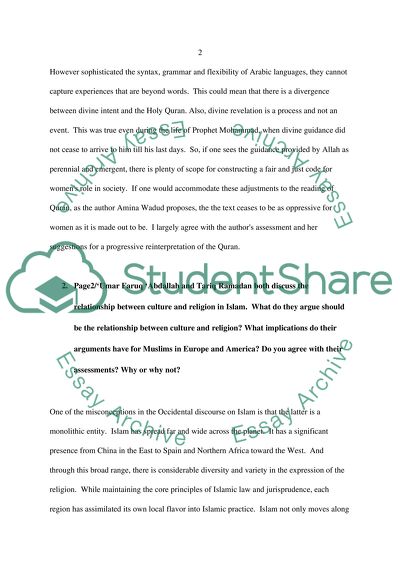Cite this document
(The Relationship between Culture and Religion in Islam Assignment - 2, n.d.)
The Relationship between Culture and Religion in Islam Assignment - 2. Retrieved from https://studentshare.org/religion-and-theology/1574445-essay-question
The Relationship between Culture and Religion in Islam Assignment - 2. Retrieved from https://studentshare.org/religion-and-theology/1574445-essay-question
(The Relationship Between Culture and Religion in Islam Assignment - 2)
The Relationship Between Culture and Religion in Islam Assignment - 2. https://studentshare.org/religion-and-theology/1574445-essay-question.
The Relationship Between Culture and Religion in Islam Assignment - 2. https://studentshare.org/religion-and-theology/1574445-essay-question.
“The Relationship Between Culture and Religion in Islam Assignment - 2”, n.d. https://studentshare.org/religion-and-theology/1574445-essay-question.


